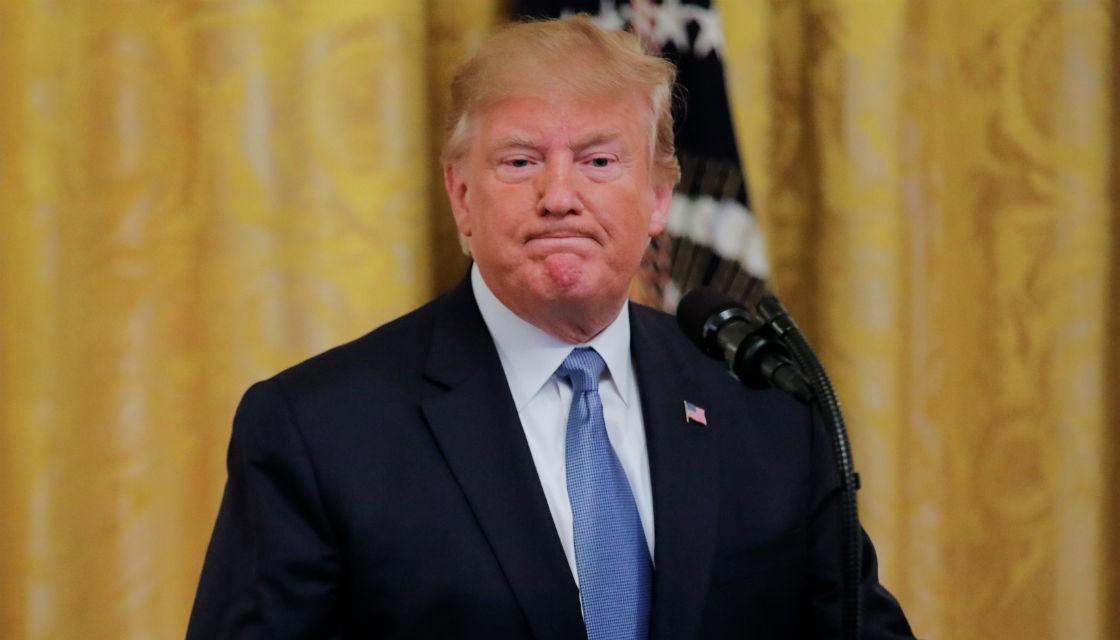US President Donald Trump on Friday said he has ordered American companies to exit China after Beijing unveiled retaliatory tariffs on US$75 billion in US goods, throwing a new twist into the bitter trade war between the world's two largest economies.
Trump said on Twitter he will issue a response to China's latest tariff plan on Friday afternoon. The President was meeting with his trade team at midday, a senior White House official told Reuters.
"We don't need China and, frankly, would be far better off without them. The vast amounts of money made and stolen by China from the United States, year after year, for decades, will and must STOP," Trump tweeted.
"Our great American companies are hereby ordered to immediately start looking for an alternative to China, including bringing your companies HOME and making your products in the United States."
It's unclear what legal authority Trump would be able to use to compel US companies to close operations in China or stop sourcing products from the country.
The US President said he also was ordering shippers including FedEx. Amazon.com and the US Postal Services to search out and refuse all deliveries of the opioid fentanyl to the United States.
China on Friday said it would impose retaliatory tariffs on US$75 billion of US goods, targeting crude oil for the first time and renewing punitive duties on American-made autos.
- New Zealand vulnerable to global economy slowdown as Trump defends US-China trade war
- China tariffs will make US richer than free trade - Trump
- Trump's trade war could have negative effect on New Zealand
The latest salvo was in response to Trump's plans to impose 10 percent tariffs on a final $300 billion list of Chinese-made consumer goods on September 1 and December 15, including cell phones, toys, laptop computers and clothing.
China's Commerce Ministry said that on those same dates it will impose additional tariffs of 5 percent or 10 percent on a total of 5078 products originating from the United States including agricultural products such as soybeans, beef and pork, as well as small aircraft. Beijing is also reinstituting tariffs on cars and auto parts originating from the United States that it suspended last December as US-China trade talks accelerated.
"China's decision to implement additional tariffs was forced by the US's unilateralism and protectionism," the ministry said in a statement.
US stocks fell sharply on fears escalation of the trade war could tip the US economy into recession. The tech-heavy Nasdaq Composite was down 2.2 percent, the S&P 500 index fell 1.8 percent and the Dow Jones Industrial Average shed 1.7 percent. US Treasury yields also fell as investors sought safe-haven assets.
US crude futures were down more than 3 percent.

White House trade adviser Peter Navarro told Fox Business Network that US-China trade talks would nevertheless continue in September and dismissed the Chinese tariff threat as small in terms of the US economy.
On Thursday, top White House economic adviser Larry Kudlow said there was progress in a deputy-level US-China trade call this week. But neither side so far appears to be ready to make a significant compromise needed to end the nearly 14-month trade war.
The protracted dispute has stoked fears about a global recession, shaking investor confidence and prompting central banks around the world to ease policy in recent months.
In an interview on CNBC, Federal Reserve Bank of Cleveland President Loretta Mester said she viewed the Chinese retaliatory tariffs as "just a continuation" of the aggravated trade policy uncertainty that has begun weighing on US business investment and sentiment.
US stock indexes slumped nearly 2 percent.
"[Trump's tweet] has certainly heightened concerns about trade and its drag on global growth," said Craig Bishop, lead strategist of fixed income group, RBC Wealth Management at Minneapolis.
"It has heightened chances of a recession. The President is his own worst enemy when he tries to manage both fiscal and monetary policies."
Reuters

